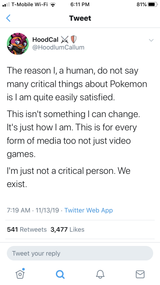Search Results
6/21/2025, 4:02:46 AM
>>508147539
You can't.
Any system, be it capitalism, communism, etc. ultimately ends up the same on large scale due to the Lemming Rule and the two main constants that follow it:
>1. The more variables are included in the system, the more likely it is for corrupt elements to emerge.
>2. The amount of effort and organization needed to remove a corrupt element grows exponentially as the variables increase, and is always way greater than it is for the corrupt element to sustain itself.
For capitalism, a simple example would be the price and customer relation.
Imagine you live in a tiny settlement of 20 people. Mr. Smith, your neighbour, has a cow and sells milk.
One day, Smith gets greedy and decides to ramp up the price of milk by 33% for no reason. From the free market perspective, the customers should tell him to fuck off and stop buying his goods. Still, Smith can afford to lose a quarter of his buyers after the hike and still turn out a profit. That's 5 people from the settlement. You, your wife, your child start a boycott, and you then convince a couple of your friends to join, too. Smith loses his profits and rolls the price back. For now, the checks and balances worked.
Now, instead of a tiny settlement of 20 we have a village of 200 and Smith owns a small cow farm. That's already 50 potential people you'd have to convince to join you.
A town of 2000? 500. Etc.
Now add to it NPCs who can't be reasoned with and rabid consoomers who'd buy extra milk *just* to spite your efforts, and the situation gets even worse.
You should get the idea by now. Democracy and so on works the same.
You can't.
Any system, be it capitalism, communism, etc. ultimately ends up the same on large scale due to the Lemming Rule and the two main constants that follow it:
>1. The more variables are included in the system, the more likely it is for corrupt elements to emerge.
>2. The amount of effort and organization needed to remove a corrupt element grows exponentially as the variables increase, and is always way greater than it is for the corrupt element to sustain itself.
For capitalism, a simple example would be the price and customer relation.
Imagine you live in a tiny settlement of 20 people. Mr. Smith, your neighbour, has a cow and sells milk.
One day, Smith gets greedy and decides to ramp up the price of milk by 33% for no reason. From the free market perspective, the customers should tell him to fuck off and stop buying his goods. Still, Smith can afford to lose a quarter of his buyers after the hike and still turn out a profit. That's 5 people from the settlement. You, your wife, your child start a boycott, and you then convince a couple of your friends to join, too. Smith loses his profits and rolls the price back. For now, the checks and balances worked.
Now, instead of a tiny settlement of 20 we have a village of 200 and Smith owns a small cow farm. That's already 50 potential people you'd have to convince to join you.
A town of 2000? 500. Etc.
Now add to it NPCs who can't be reasoned with and rabid consoomers who'd buy extra milk *just* to spite your efforts, and the situation gets even worse.
You should get the idea by now. Democracy and so on works the same.
Page 1
